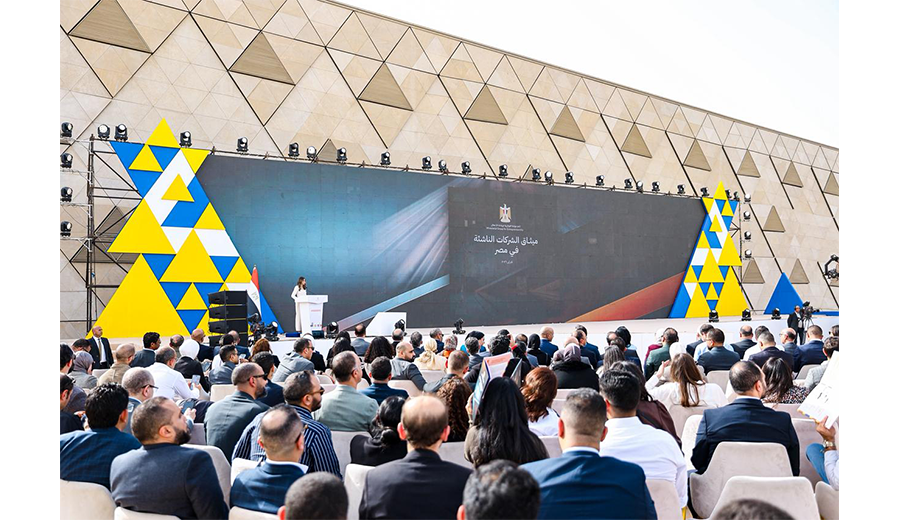Planning Ministry Reviews Targets of Current FY Plan 23/2024 in the Field of Local Development

27 March 2024
The Ministry of Planning and Economic Development presented its targets for the current fiscal year plan 23/2024 in the field of local development in a recent report. Dr. Hala El-Said, Minister of Planning and Economic Development, underscored the significance of balanced local development as a key component of Egypt's Vision 2030. The aim is to mitigate developmental discrepancies between governorates while effectively harnessing the available resources and potentials in each area. The plan is designed to identify promising opportunities for the development of each governorate, taking into account its relative advantages and competitiveness. Additionally, it aims to address existing deficiencies or obstacles hindering the utilization of these opportunities and prioritize development areas to enhance the living standards of citizens across all governorates. The plan also advocates for a participatory approach in formulating, implementing, monitoring, and evaluating local development plans and programs.
In terms of financial allocations for the local development plan 23/2024, El-Said clarified that the total allocations amount to approximately 24.5 billion Egyptian pounds. This reflects a 3.8% increase over the expected value for the year 22/2023 and a significant 15.7% increase over actual local investments in the year 21/2022. This upward trend underscores the government's commitment to intensify investments directed towards local development, which have more than tripled from the period extending from 14/2015 to 21/2022.
The report delineated the allocation of funds for general governorate programs for local development in the year 23/2024, with Cairo Governorate claiming the largest share at about 11%, followed by Asyut and Beheira governorates at 6% each. The investment structure, according to local development programs, encompasses six sub-programs focusing on road paving, bridges and tunnels, electricity network expansion and reinforcement, environmental improvement, security, firefighting, and traffic management, in addition to a program supporting the needs of local units.
The report indicated a predominant allocation for the road paving program at 38.8%, followed by the environmental improvement program at around 17%. Subsequently, the program supporting the needs of local units received 12.7%, and the electricity network expansion and reinforcement program received 10.8%. Finally, the programs for security, firefighting, traffic management, bridges, and tunnels constituted 6.5% and 5.3% respectively.
Regarding the investment structure by regions, the report highlighted that the Greater Cairo Region acquired 20% of the total targeted investments, followed by the Upper Egypt South Region at 19%, and the Suez Canal and Sinai Region at 14%. Additionally, the Delta and Alexandria Region accounted for 13.7% and 12.9% respectively, while the North Upper Egypt Region accounted for approximately 12%, and the Middle Upper Egypt Region accounted for 8.4%.
The report also detailed allocations for each developmental program at the governorate level. For instance, in terms of the road paving program, investments of around 7.41 billion Egyptian pounds are allocated during the year 23/2024. Cairo Governorate receives the highest share at 18.2%, followed by Giza Governorate at 11.2%, and Beheira Governorate at 6.1%. Similarly, the electricity network expansion and reinforcement program receive investments of around 2.07 billion Egyptian pounds, with Cairo Governorate leading at 12%, followed by the North Sinai Governorate at 9.6%, and Luxor, Beheira, and South Sinai Governorates at 8.3%, 5.9%, and 5.8% respectively.
Furthermore, the report highlighted investments of approximately 3.25 billion Egyptian pounds for the environmental improvement program during the year 23/2024, with Beheira Governorate receiving the highest share at 10.7%, followed by Asyut and Fayoum Governorates at 10.5% and 9.6% respectively. As for the security, firefighting, and traffic management program, investments of around 1.24 billion Egyptian pounds are allocated during the year 23/2024, with Asyut and Cairo Governorates taking the lead at 15.2% and 9.5% respectively, followed by Alexandria, Kafr El-Sheikh, and Luxor Governorates at 5.9%, 5.7%, and 5.6% respectively. Other governorates receive allocations ranging from 0.8% to 4.8%.









